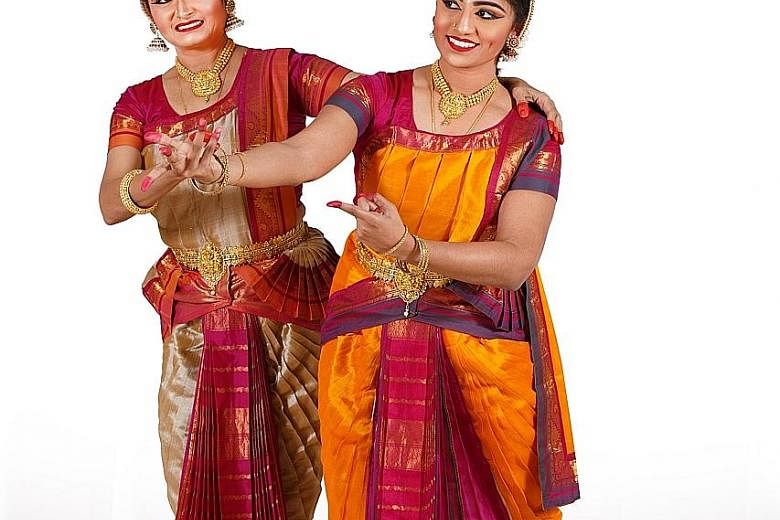Dancer Devapriya Appan's two lives intertwine in an upcoming production, as she slips into the role of a girl with schizophrenia.
For most of her life, she has nursed a love of bharatanatyam, an Indian classical dance form she picked up 26 years ago.
In her postings as a junior doctor, she also discovered her calling. The 32-year-old is now a psychiatrist-in-training at the Institute of Mental Health (IMH).
Both passions will collide when she takes the stage for Finding Dignity - An Exploration Of Mental Illness Through Bharatanatyam, which will run at the School of the Arts Theatre Studio on Oct 22 and 23.
The dance production tells the story of a daughter's journey with schizophrenia and her mother's struggle to come to terms with it.
-
BOOK IT/ FINDING DIGNITY - AN EXPLORATION OF MENTAL ILLNESS THROUGH BHARATHANATYAM
-
WHERE: School of the Arts Theatre Studio, 1 Zubir Said Drive
WHEN: Oct 22 and 23, 7.30pm
ADMISSION: $26 for standard tickets, $22 for students and seniors. From apactix.com
Appan, who started her posting at IMH in 2012, says: "Only when I started working in psychiatry did I realise that there is a sizeable part of our society who are disadvantaged and stigmatised due to their mental illness.
"In my interactions with patients and their families, I've been trying to understand their difficulties and the challenges they face in our society today and help them."
For her, Finding Dignity is exciting - and wildly different.
"Having to play the part of someone with schizophrenia has been challenging for me. I've tried to understand more about the personal experience of psychosis by speaking to people in recovery and reading books by persons with mental illness," she says.
"Playing this part has also broadened my horizons and made me empathise more with patients."
The show reunites Appan with Lalitha Venketasubramanian, 49, who will be playing her mother. Both are students of Apsaras Arts, studying under Cultural Medallion recipient Neila Sathyalingam, and had played a mother-daughter role before in the dance company's previous production.
Venketasubramanian, who also conceptualised and scripted Finding Dignity, says she spoke with a range of people, including medical professionals and patients from IMH, to develop the story.
"Hearing the pleas from patients - such as 'Don't ostracise us' or 'We're not crazy' - was very moving. And the resilience, strength and positivity of the caregivers were inspiring," she says.
"One of them said, 'You have to accept that the child is sick. It is just like any other illness, like diabetes, cancer. If you don't help this person, this person is not going to get any better'. This was the most powerful message, as acceptance by family members is so important in recovery."
She sees Finding Dignity as a way to complement other avenues, such as public lectures and charity runs, that raise awareness of mental health issues.
A dance production, she says, can touch audiences on a different plane. "We change our behaviour when we care, and theatre and dance is a perfect medium for this."
She has rallied together a team that includes veteran dancer Shantha Ratii as artistic consultant; vocalist and composer Sudha Raghuraman, who worked on the music score; and senior dancer Veerappan Balakrishnan, who came up with the lyrics. Four other dancers make up the show.
For choreographer Ajith Bhaskar Dass, 48, working on the production was a reaffirmation of the potential of Indian classical dance as not just a medium of self-expression, but also as an effective tool to put social issues in the spotlight.
Venketasubramanian hopes that Finding Dignity will jolt people into thinking and talking about mental illness, a fraught issue usually met with silence and misunderstanding.
There will be a panel discussion after each show, with a psychiatrist, a caregiver, a recovering patient and one of the artists sharing their thoughts.
Venketasubramanian says: "It's important to start conversations about mental illness straight away. We want to give the audience a chance to clear doubts or misconceptions, or raise questions about mental illness and have people in the know answer these questions."


